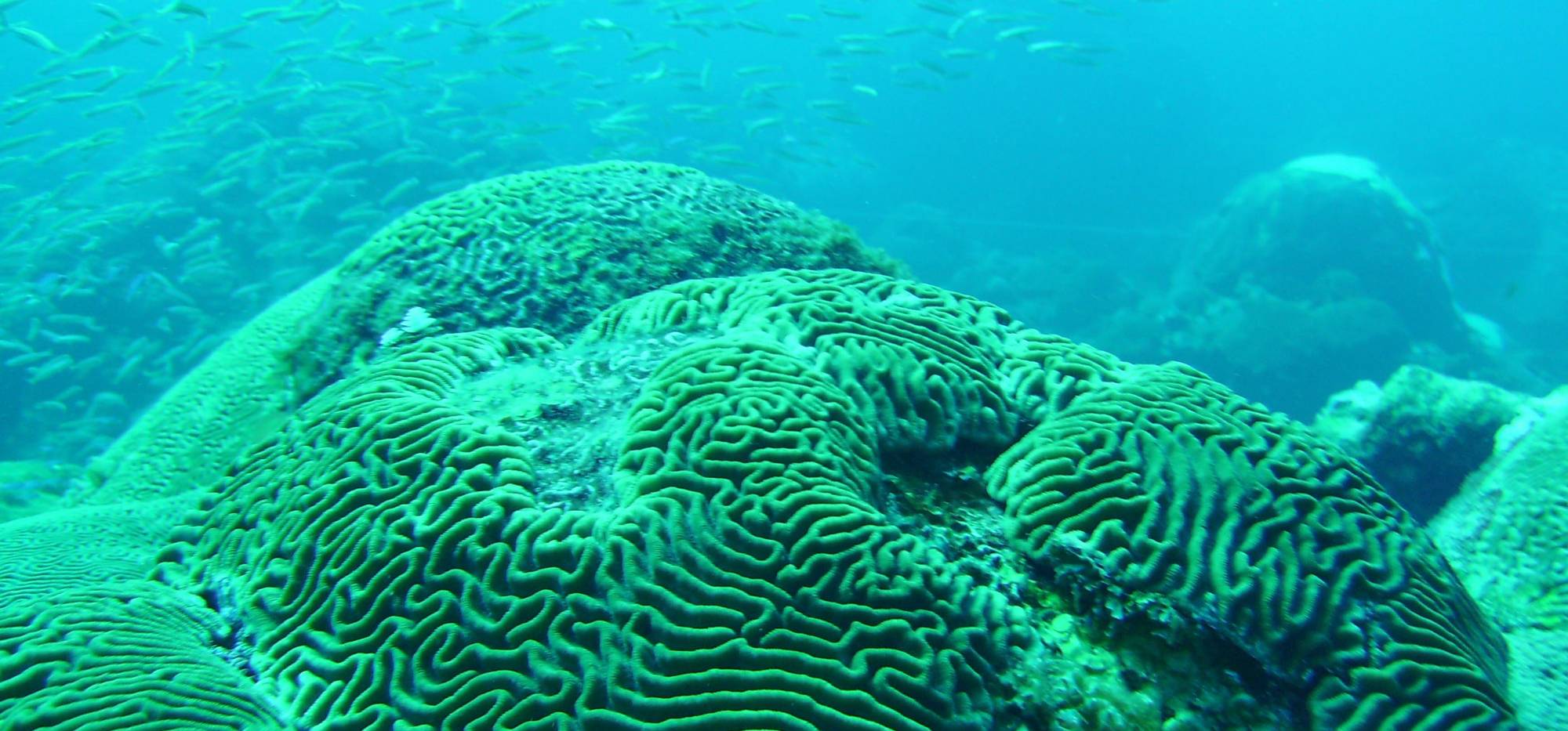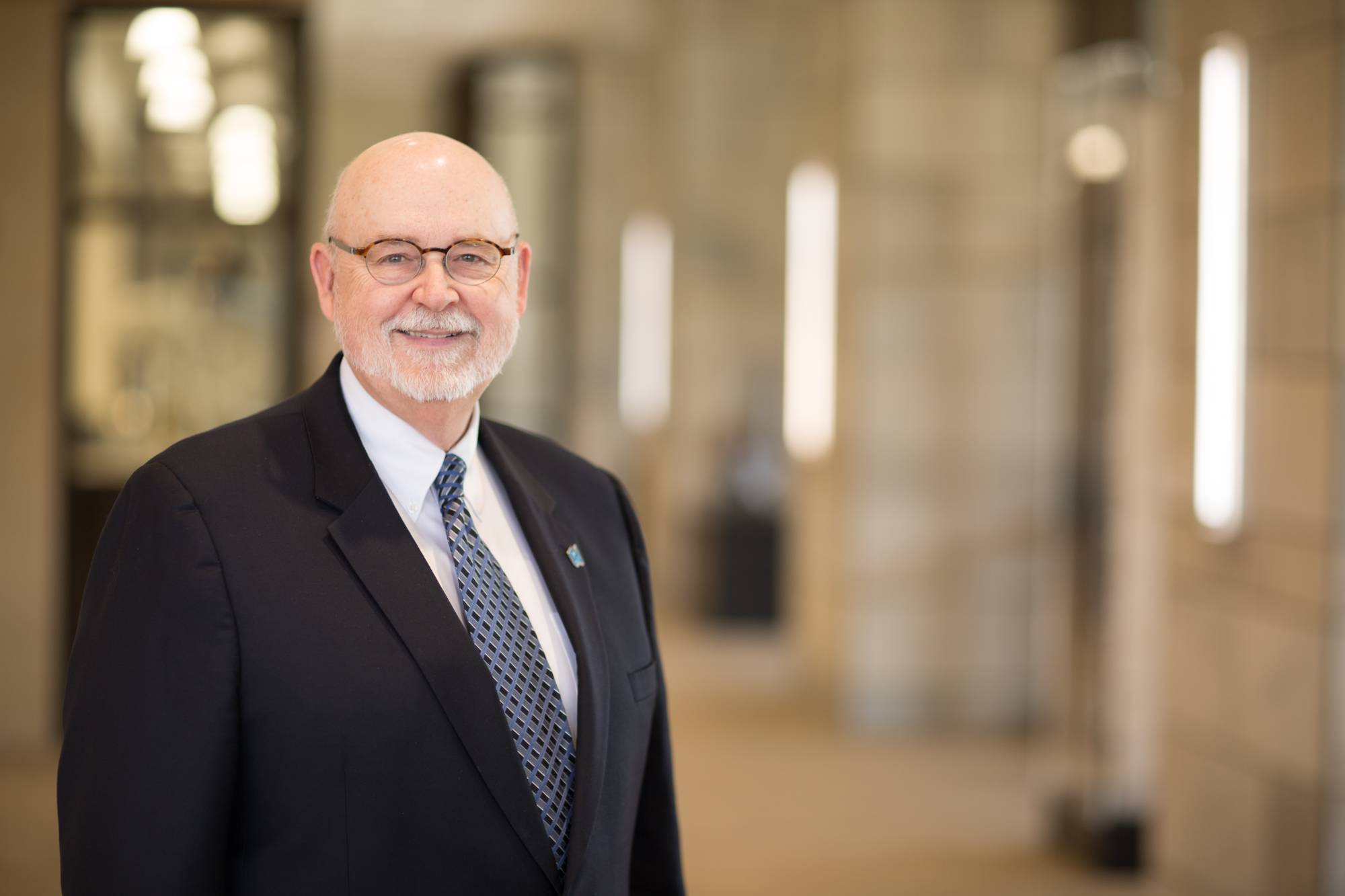CLAS Acts February 2020
Monthly newsletter of the TT Faculty of CLAS

Triangulating on the Future with Kevin Strychar
By Monica Johnstone, PhD
Professor Kevin Strychar leans back in the chair in the AWRI perching office on the 4th floor of MAK. “About a third of my students don’t believe in climate change; I don’t think they’ve seen the size of the pumps in southern Florida and how they are building roads to higher levels.” Kevin, raised on a northern Alberta farm, definitely brings a wider perspective on the state of the environment than many college students have yet experienced. “There are 2,100 costal city lots with problems with sea level rise. NOAA noted that 2019 had the second hottest temperatures on record.”
“Canada sea ice is opening up. How do you defend that? Do you own it in terms of oil and gas? My family farm grows wheat that couldn’t be grown in Canada 35 years ago.”
The change is a matter of record and personal experience for Kevin.
He recalls that when he was teaching at Texas A & M he had a grant to look at algae for biofuels in 50 years—the project was grounded in the assumption that the dominant algae type would have changed by then and would refocus research.
“Diseases, pathogens are moving north. It changes what happens. There are lionfish up near Maine and Newfoundland. Lake Superior is warmer by 7 degrees. Even one degree more grows and breeds different things.”
Kevin’s PhD was on climate change in coral reefs. Many don’t realize that about 49% of these in the marine environment have suffered significant losses. “Reefs will be around in 25-50 years in my opinion but they will be vastly different. Coupled to changing temperatures, ocean acidification of 0.1 pH change affects the calcium carbonate in all coral including soft corals. Even in the Great Lakes, there is concern of acidification which will affect fish species, shell formation—things will be drastically different in the world our kids live in.”
“We can make changes by being educated. We don’t yet know what all of those changes will be.”
His words recall for me a documentary about the work of MIT Media Lab phenom Neri Oxman in which she talks about working 50 years into the future or necessarily falling behind.
Kevin is already drawing additional connections. How government regulates and defines will matter. “At Texas A&M we talked about GMOs. In testing, ‘non-GMO’ things came up positive for GMOs which at less than 1% were allowed to be advertised as non-GMO, but that isn’t taken seriously. We talked about it, but people just rolled their eyes not long ago.”
To underscore his point about people’s uneasy relationship to science and the speed of change, Kevin points out that people are lining up in the Mideast to be cloned and that the crazy predictions of old science fiction movies about 2020 sometimes turned out to be true.
“What will happen when Michigan beaches are warmer? Will Spring Break be here? Michigan will be very different in 50 years.”
Kevin is helping his research students focus on the future in fascinating projects. Cassidy Gilmore is looking at Staghorn coral. 25 years ago it was the dominant species in the Gulf of Mexico. Then 10-15 years ago people began to sound the alarm that it was dying. Very sensitive to heat stress, the Staghorn joined the list of species at risk. “In the Florida Keys Marine Park you used to be able to get a permit to do research on this species, the canary in the coal mine. You can’t today because it is at risk of being completely wiped out. Lots of labs are looking at ways of bringing it back from the brink of extinction through genetics and culture methods.” Cassidy is looking at whether you can make a species hardier in the lab. Like Mendel, can you select traits form the hardiest?
Tom Goreau (a biogeochemist and marine biologist) and his family have studied coral and are raising coral using electrical impulses in the Middle East. Cassidy is testing wild species relative to these aquacultured species. Do they have the resilience to thermal bleaching? This has never before been tested.
“Really novel,” Kevin notes. “It has the potential to really give back to the marine parks.”
Another research student, Tyler Harman is working on a project on Astrangia (a genus of stony corals in the family Rhizangiidae) which is a cold-water species found around North Carolina and Virgina. They are a unique species that can be symbiotic or aposymbiotic (without algae). He’s looking into what happens with ocean temperature rise—how will they adapt?
Tyler works by getting permits, bringing samples in and setting up controls and then subjecting other samples to the highest temperatures they might see—the upper limit—and also something extreme such as 2 degrees centigrade higher.
To explain why the extremes are being tested, Kevin explains that when he lived in Rockhampton (in central Queensland, Australia) he heard that “the valley only floods every 100 years”, but now it has twice in 40 years. Frequency and intensity of change is different today than 50 years ago.
Since I too have lived in Australia under severe water restrictions, I raise the specter of “water rage,” when people act violently against neighbors who act in defiance of water restrictions. We swap stories of using water reclaimed from air conditioning systems to water our struggling plants.
Kevin points out that for some Americans it takes having the problem right in your face to see that it is a universal problem. In his native Alberta where oil is king, even the wealthy farmers of that province all believe in climate change. Oil pipeline workers believe because they see the issues. “These grassroots people are seeing it, living it,” Kevin concludes.
“The oceans are 75-76% of the Earth. Boil a pot of water. Now try a big crock pot—it takes longer to cool. We should make changes now, not when it is what some describe as doomsday – in our face forcing us to rapidly make changes. It’s like titration; don’t wait for equilibrium,” Kevin warns. “I attended a climate change conference in Israel and was struck by the fact that people stopped wars to discuss water. Israeli reclamation is amazing, but is not solving all of their water problems.”
As a scientist he has seen this before. Some cling to certain technology even when it is not solving their problems and may even resist better technology. He tells me the story of a local grant official who would not see the benefit of effectively and quickly testing the waters of Michigan with rapid near real-time technology thereby potentially reducing the risk of invasive species. Kevin had recommended underwater flow cytometry which would give an answer in seconds rather than days, but the grant official could not comprehend the technology or did not want to embrace new technologies – and the grant and those technologies were rejected. He notes it would have been a great tool in the recent issues with E. coli, or the recent apple Listeria recall, how it could also be used on beach monitoring. For some peculiar reason, granting personnel are slow and unwilling to try new/novel technologies and prone to older antiquated methodologies.
Though not being listened to comes with its frustrations, he like other scientists I’ve spoken to, are not gloom and doom. He sees his son teaching other kids about what can be done. He notes a downward trend in his own electric bill based on new technologies. Climate will change and so will technology even if some of these people don’t want to change – when it’s in their face, they will have no choice but to change. If Thomas Kuhn remains correct, a new generation will be part of the cycle of acceptance of new ideas.
“Smart people can have a significant impact on climate. We could have zero emissions like Germany. What are you going to do with the knowledge?” Kevin asks.
And then he shares why it is so important to teach this material. “Somebody in my class of 100 is going to go into politics.”

FROM THE DEAN’S DESK
Midwinter weather has been a kind of metaphor for whether “Is this the new normal?” is even the right question to ask. With changes in demographics and the higher ed landscape more generally (not to mention the planet), so much can feel up in the air. My strong recommendation to anyone who feels discombobulated is to do the work of February: FARs, personnel work, and what faculty do at mid-semester perennially. Your FAR may not seem like a North Star, exactly, but you may find that it serves as a fixed point in your own journey, a time of reflection for your goals amidst the swirling discussions about bigger pictures.
This is a time of notable change, but it is also some of your students’ first year or last year, and I suspect these students undergoing these huge transitions are looking to you to see how their professors center themselves in the face of flux.
Meanwhile, I’m looking to the work of deaning and trying not to get too far ahead of myself as I contemplate a sabbatical and Winter 2021 courses I’m enthusiastic to teach.
Some great events are coming up in February—have a look at the CLAS Happenings poster and our web calendar. Invite a new colleague and catch the musical, a concert, a film series, a play, a science event, or our Research Colloquium. Please note that on February 19 from 6-8 p.m. the Repair Clinic will help our students hold it all together; pass the word.
Though some things are changing, much abides. May February be a time to focus on your role and bring you clarity about how you want to influence the future.

Mark Your Calendars!
OUT OF THE BOX presents Faculty as ‘First Responders’: Support Resources for Student Retention and Success
Tuesday, March 10. KC Rm. 2204, 1 - 2:30 p.m.
Wednesday, March 11. KC Rm. 2270, 1 – 2:30 p.m.
This year, Out of the Box presents two panels that will address student retention and success. The program will include information about the Student Success Network, academic coaching, adult learners, food insecurity on campus, encouraging students to seek proactive support, faculty advising strategies, and first-generation students.
Short presentations by GVSU staff will precede Q & A/discussion. Faculty may attend one or both panels. Registration is on the OOTB webpage.
Desserts and beverages will be provided.
